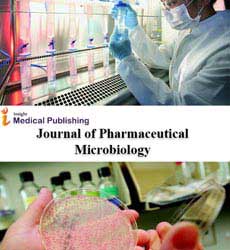Abstract
New steroid compounds from biotransformation of cortisone with Rhodococcus rhodnii
Cortisone is a steroid widely used as an antiâ?ÂÂÃâÃÂinflammatory drug able to suppress the immune system, thus reducing inflammation and attendant pain and swelling at the site of an injury. Due to its numerous side effects, especially in prolonged and highâ?ÂÂÃâÃÂdose therapies, the development of the pharmaceutical industry is currently aimed at finding new compounds with similar activities but with minor or no side effects. Biotransformation are an important methodology towards more sustainable industrial processes, according to the principles of “green chemistry”. The biotransformation of cortisone with Rhodococcus rhodnii DSM 43960 afforded two new steroids, the time of biotransformation (24 h) was rather short, and the yield of the product was almost quantitative, as no residual cortisone was observed. The chemical structures of these new products present peculiarities that suggest potential biological and therapeutic activity. The preliminary cytotoxicity tests obtained by MTT assay gave promising results for the use of these new derivatives, even at the highest concentrations tested.
Author(s):
Stefania Costa
Abstract | Full-Text | PDF
Share this

Google scholar citation report
Citations : 36
Journal of Pharmaceutical Microbiology received 36 citations as per google scholar report
Abstracted/Indexed in
- Google Scholar
- Secret Search Engine Labs
Open Access Journals
- Aquaculture & Veterinary Science
- Chemistry & Chemical Sciences
- Clinical Sciences
- Engineering
- General Science
- Genetics & Molecular Biology
- Health Care & Nursing
- Immunology & Microbiology
- Materials Science
- Mathematics & Physics
- Medical Sciences
- Neurology & Psychiatry
- Oncology & Cancer Science
- Pharmaceutical Sciences

